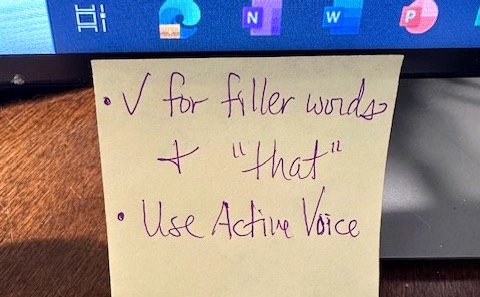Should We Use Contractions?
2024 Grammar-for-Grownups Top 10
Number 3
“For formal business writing, when should contractions be used, and when should they not be?”
This question was shared by a participant in the IAAP CAPstone Business Writing Specialty Certificate course.
The answer to this question is more stylistic in nature. Consult your organization’s writing style guide first. Different companies have different viewpoints on the acceptability of contractions in business communication. Follow your organization’s preferences.
I’ll simply share my recommendation. Generally speaking, contractions are acceptable in professional emails and informal correspondence. In other words, we can write the way we speak.
We’ll make reservations for the restaurant around the corner from the convention center.
They don’t require two forms of identification for the application.
The professor isn’t going to grade the essays this weekend.
You don’t have to spell out:
- We will
- Do not
- Is not
When many of us were in high school, our English teachers taught us never to use contractions in our papers. Fortunately, that rule has been relaxed for contemporary correspondence. However, if you are submitting a more formal report or proposal, I recommend avoiding contractions. Do not use them in legal documentation or contracts.
To customize a keynote or professional development session that will have your audience laughing and learning, contact Mandi Stanley.
Certified Speaking Professional Mandi Stanley works with business leaders who want to boost their professional image by becoming better speakers and writers through interactive high-content keynotes, breakout sessions, workshops, technical writing seminars, and fun proofreading classes.
You might also like:
Prefer Performance to Chronology in Your Résumé
It’s Interview Time: What’s the One Detail Most Interviewees Forget?












